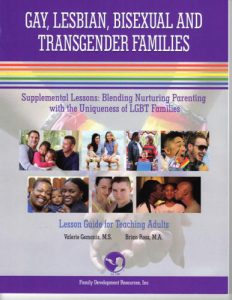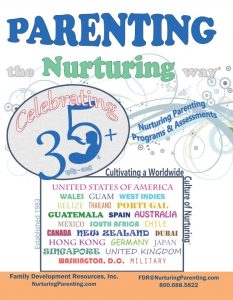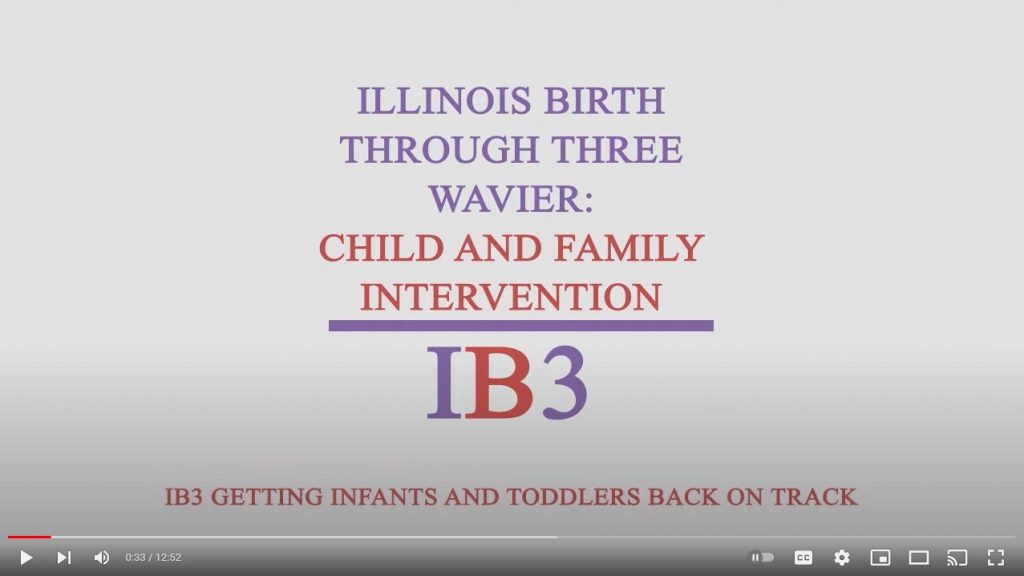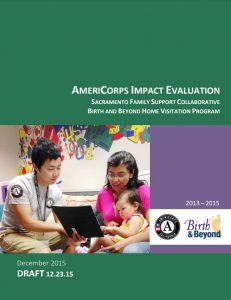Innovative Model
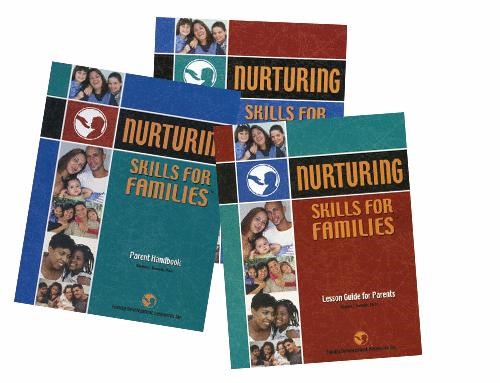
Originally posted 6/22/2018
Nurturing Skills for Families is an innovative model of the Nurturing Programs that is designed to provide flexibility to meet the needs of families with children ranging in age from birth to 11 years old.
The Lesson Guide for Parents contains over 80 individual lessons presented in 18 competency areas.
Core competency lessons form the basic structure of the program. Additional supplemental lessons allow parent educators to tailor the program to the needs of the group or family.
Learn More about Nurturing Skills for Families
Duchess of Cambridge, Family Links, and Nurturing Parenting
Originally posted 3/15/2018
The Nurturing Program is based on the idea that we can enhance parents’ skills to improve family relationships and parents’ emotional health, as well as the emotional health and development of their children.
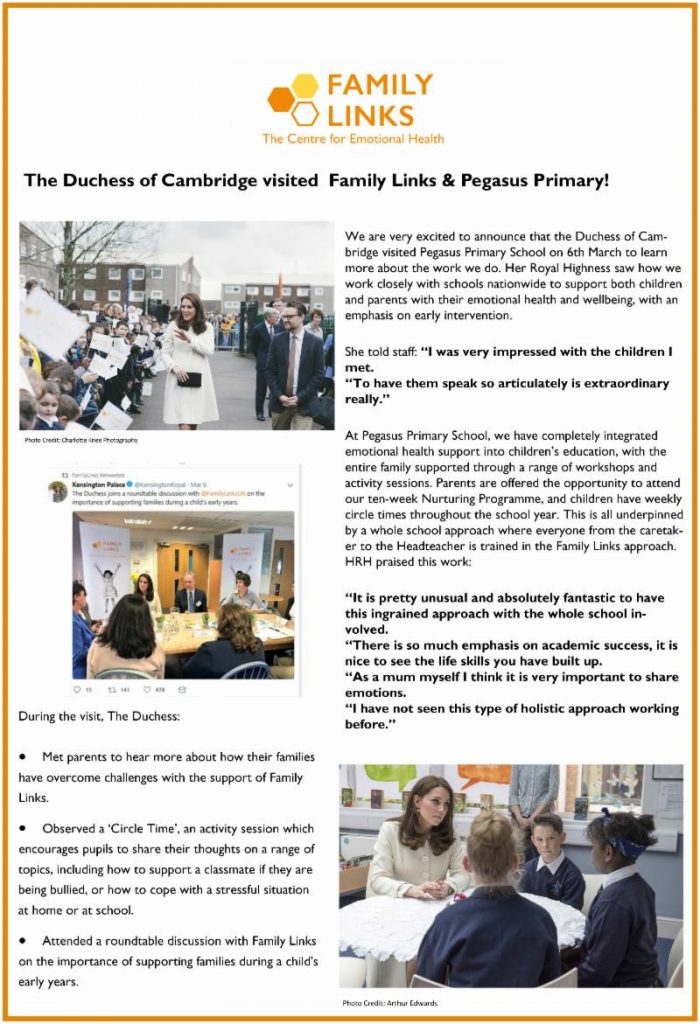
Based upon the Four Constructs illustrated below, it is a cognitive relational program, focusing mostly on helping parents understand thoughts, feelings, and emotions (of both parents and children) and on the quality of relationships between parents and children… Read the entire article
New on AssessingParenting.com
Originally posted 3/9/2018
Spanish Translations Now Available on AssessingParenting.com
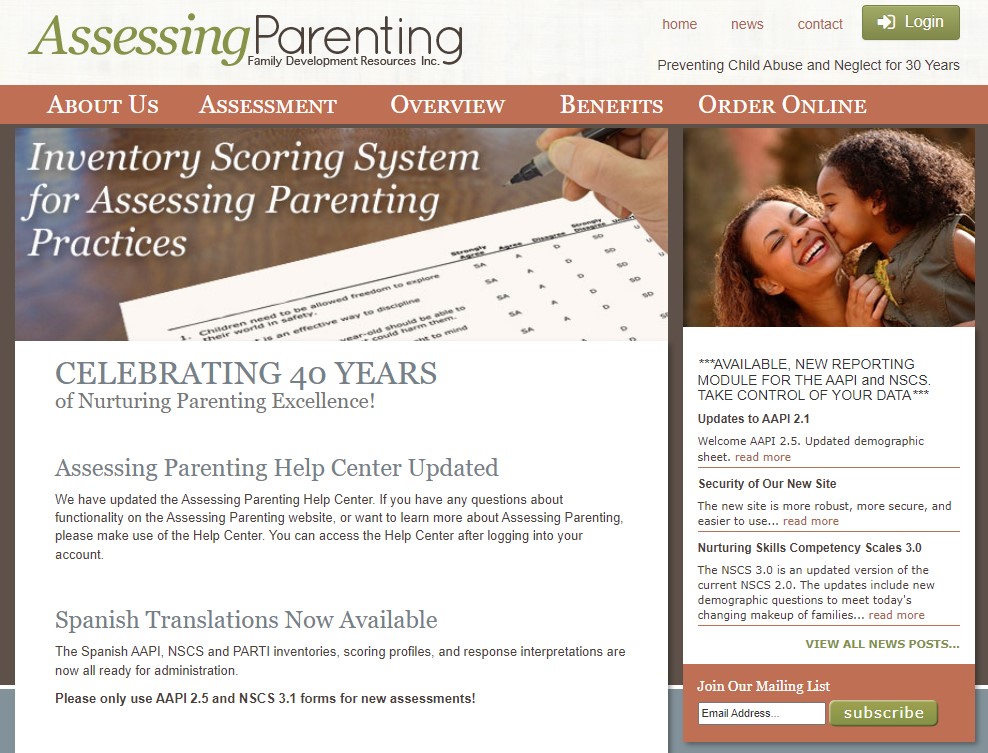
The Spanish AAPI, NSCS, and PARTI inventories, scoring profiles, and response interpretations are now all ready for administration.
The functional purpose of assessment is to gather information for decision-makers. Families, professionals in the helping fields, agency administrators, and funding sources are typical decision-makers who rely on information to assist them in their decision-making.
Order Online Assessments to be used on AssessingParenting.com
UPDATED RESEARCH REPORTS AND FINDINGS NurturingProgramResearch.com
Originally posted 5/15/2018
https://www.nurturingprogramresearch.com
The Nurturing Programs are Evidence-Based, Trauma-Informed programs that involve the entire family. The Nurturing Program Research website has been created to support your interest in knowing and understanding the decades of research that support the effectiveness of the Nurturing Programs.
What Are Nurturing Parenting Programs?
Originally posted 3/8/2017
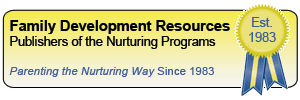
The Nurturing Parenting Programs are a family-centered trauma-informed initiative designed to build nurturing parenting skills as an alternative to abusive and neglecting parenting and child-rearing practices.
The long-term goals are to prevent recidivism in families receiving social services, lower the rate of multi-parent teenage pregnancies, reduce the rate of juvenile delinquency and alcohol abuse, and stop the intergenerational cycle of child abuse by teaching positive parenting behaviors.
Seven things you should know about Nurturing Parenting Programs
Looking for a Facilitator Training Workshop?
Originally posted 10/14/2016
Browse by State, Month, or Trainer/Consultant
Facilitator Training and Seminar Workshops are a generic three-day workshop that teaches the philosophy of Nurturing Parenting and how to implement and facilitate the Nurturing Parenting Programs.
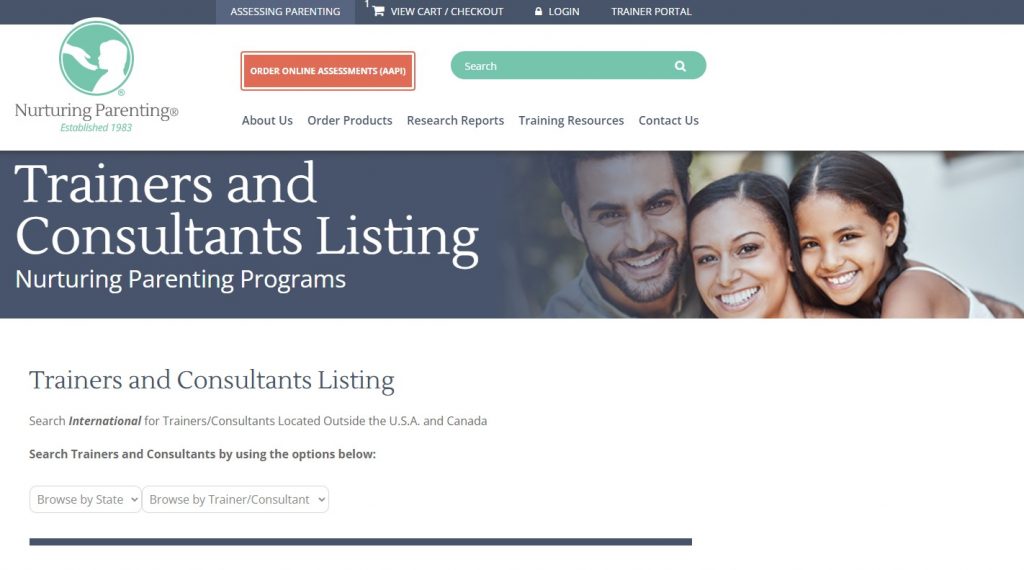
Trainings fill quickly so register early! To attend or if you need assistance regarding a Nurturing Parenting Programs Facilitator Training and Seminar Workshop or Training with Dr. Stephen J. Bavolek contact the Family Nurturing Center: FNC@NurturingParenting.com or Phone: (262) 652-6501.
Go to Facilitator Training and Seminar Workshops
Gay, Lesbian, Bisexual, and Transgender Families Commercial
Originally posted 8/24/2016
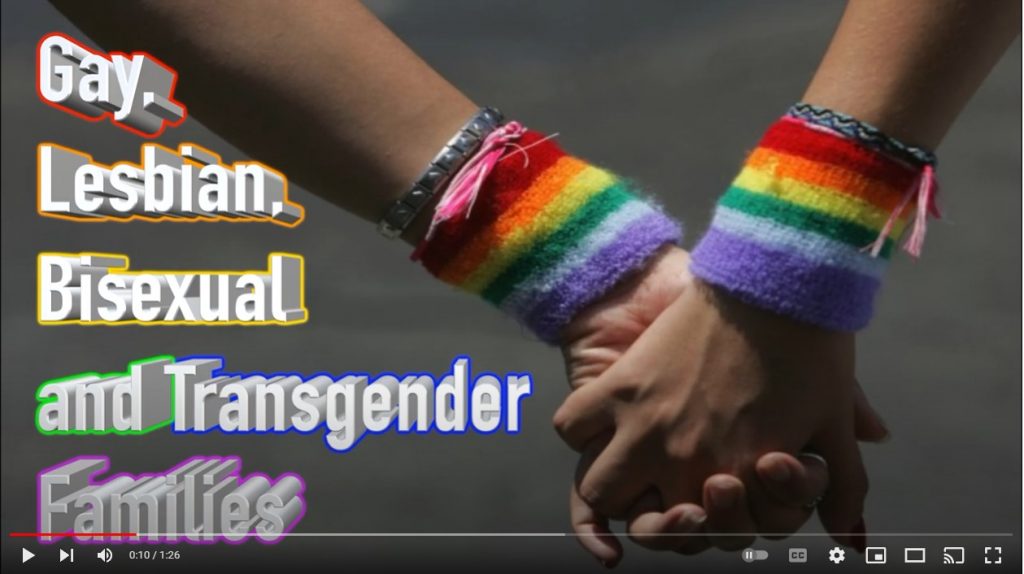
Blend Nurturing Parenting with the uniqueness of LGBT Families. Six Sessions that Empower Parents and Professionals.
Major Goals for Teaching and Understanding the Parenting Traditions of LGBT Families are to help LGBT parents connect with each other and reconnect with themselves and their children for a meaningful progression to equity, dignity, and respect in a society that often strays from its commitment to establish equality for all people.
To help professionals advance the development of LGBT parenting skills by integrating contemporary concepts of parenting with successful approaches to working with LGBT parents and their children. To present a definitive and different parenting program developed within and reflective of the LGBT culture and strategies to develop a variety of responses to those outside the LGBT family.
Six New Nurturing Skills Competency Scales
Originally posted 7/15/2016
To Be Released July 27, 2016 (English versions available at this time)

Plus updated demographic questions for AAPI 2.1 and NSCS 3.0
The six new NSCS inventories include: Parents & their Children Birth to Five Teen Parents/Young Parents & their Families Families in Nurturing Skills Programs. Prenatal Families Parents & their Adolescents Parents & their School-Age Children
The AAPI 2.1 version consists of an updated demographic sheet only. None of the 40 items on Forms A or B have been changed. Click here to view the updated AAPI 2.1 demographic sheet.
The demographic sheets for both the NSCS 3.0 and AAPI 2.1 are identical. For parents completing both the NSCS 3.0 and AAPI 2.1, they only need to complete the demographic form one time. The information will automatically transfer to the other form.
The current 2.0 version of the NSCS for Parents and their Children B to 5 and the current 2.0 version of the AAPI will continue to be offered until January 6th, 2017 to allow time to transition to the updated forms… Learn more
Gay, Lesbian, Bisexual and Transgender Families Supplemental
Originally posted 6/8/2016
Blend Nurturing Parenting with the uniqueness of LGBT Families
Six Sessions that Empower Parents and Professionals.
Major Goals for Teaching and Understanding the Parenting Traditions of LGBT Families are to help LGBT parents connect with each other and reconnect with themselves and their children for a meaningful progression to equity, dignity, and respect in a society that often strays from its commitment to establish equality for all people.
To help professionals advance the development of LGBT parenting skills by integrating contemporary concepts of parenting with successful approaches to working with LGBT parents and their children. To present a definitive and different parenting program developed within and reflective of the LGBT culture and strategies to develop a variety of responses to those outside the LGBT family.
To examine any negative messages and images of self and families and encourage positive messages and images. To help participants (parents, co-parents, relatives, professionals, paraprofessionals, those involved with families, and others) become their authentic selves and, therefore, help children become their authentic selves… Learn More
Nurturing Parenting Programs 2016 Catalog
Originally posted 5/6/2016
Family-centered trauma-informed initiative
The Nurturing Parenting Programs are a family-centered trauma-informed initiative designed to build nurturing parenting skills as an alternative to abusive and neglecting parenting and child-rearing practices.
The long-term goals are to prevent recidivism in families receiving social services, lower the rate of multi-parent teenage pregnancies, reduce the rate of juvenile delinquency and alcohol abuse, and stop the intergenerational cycle of child abuse by teaching positive parenting behaviors.
Download Nurturing Parenting Programs 2016 Catalog
Illinois Birth Through Three Waiver
Originally posted 3/15/2016
Developmentally Informed Child and Family Interventions
IB3 is now in year 3 of the demonstration. We appreciate another opportunity to review growth and progress and to enumerate ongoing challenges with the waiver implementation.
This report provides a comprehensive review of implementation activities across each year of the demonstration in the evaluation section of this report. As we end this reporting period, there are currently 1,255 children referred to the demonstration and there is an even distribution of those cases across intervention and comparison agencies.
The assessment processes and the associated algorithm for determining risk is one of the most substantial innovations of the demonstration. Findings in this report reflect a “remarkable balance” across intervention and comparison cases which support the valid implementation of the risk determination processes for the waiver… Read More
Family Links partners with Canterbury Christ Church University
Originally posted 1/31/2016
Family Links delivers innovative, high-quality training in the Nurturing Programme to health and social care services, third-sector organizations, schools, and universities.
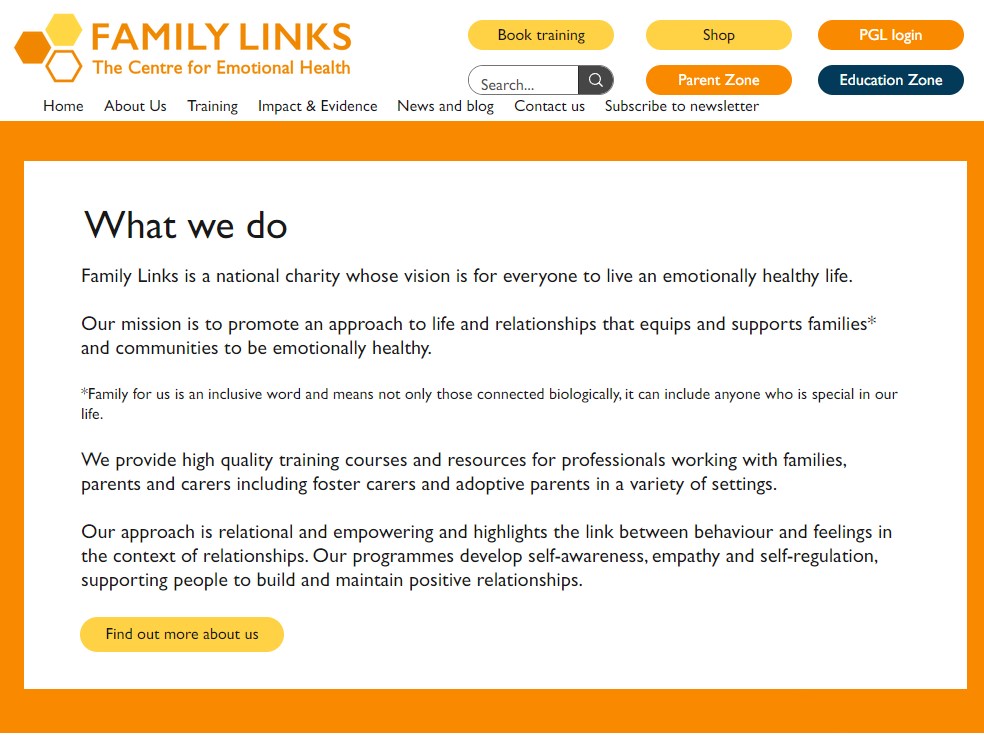
Family Links partners with Canterbury Christ Church University to pioneer an innovative Postgraduate Certificate in Social and Emotional Learning for teachers.
The UK’s leading emotional health charity, Family Links, has announced a new partnership with Canterbury Christ Church University to offer the UK’s first Postgraduate Certificate in Social and Emotional Learning.
Significant research from across the world has consistently shown the positive relationship between improved social and emotional skills and a multitude of other outcomes for children, including academic achievement, mental health, and progression to further study. These modules will advance the pioneering work of Family Links and CCCU to expand social and emotional learning to more schools in the UK…
Research & Validation Studies Just Released!
Originally posted 1/29/2016
View All Research and Validation Studies
Birth and Beyond AmeriCorps study from 2013 to 2015 utilizes a quasi-experimental research design to measure the pre-post impact of the Nurturing Parenting Program with longitudinal follow-up data.
The Nurturing Parenting Program utilized was primarily Parents and their Infants, Toddlers, and Preschoolers… Read More
The Oregon’s IV-E Waiver Demonstration Project assesses two innovative service models for families in the child welfare system:
- Relationship Based Visitation (RBV)
- Parent Mentoring (PM) using RCT research design
The Nurturing Parenting Program utilized was primarily Parents and their School Age Children… Read More
- Birth and Beyond AmeriCorps study from 2013 to 2015 (PDF)
- The Oregon’s IV-E Waiver Demonstration Project (PDF)
- View All Research and Validations Studies
A Fourteen-Step Quick Implementation Guide
Originally posted 10/13/2015
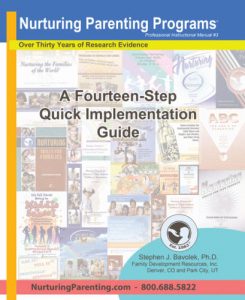
Welcome to the world of Nurturing Parenting
Our vision is to cultivate a culture of nurturing through the implementation of community-based, family-focused education in the philosophy and practices of nurturing.
Education in nurturing is a proven philosophy and program that can be taught and practiced in our families, in our schools, in our businesses, in our places of worship, and in all the branches and levels of government worldwide… Learn More
7 Facts You Should Know and Share on the Nurturing Programs!
Originally posted 9/15/2015

1. Thirty Nurturing Programs: Select the Right Program for Your Families
Family Development is committed to meeting the unique needs of families. To this end, approximately 30 programs or program models are available that are designed to meet the family’s educational learning styles and abilities; the family’s culture and language; the ages of the children as well as the ages of the parents. The first step in implementing the Nurturing Parenting Programs is to select the right program(s) for the families you are serving.
2. Nurturing Programs: Three Levels of Prevention and Session Dosage
3. Nurturing Program Sessions are delivered in Three Program Models
4. Nurturing Program Lessons are Competency Based
5. Nurturing Programs have built-in Assessment and Evaluation Practices
6. Pre and Post Program Assessment and Evaluation Measures
7. Process Evaluation Measures
What Makes Nurturing Parenting Programs Unique?
Originally posted 8/10/2015
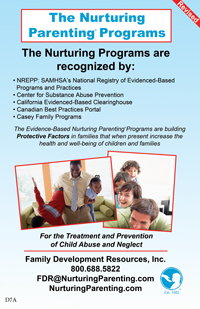
What is very unique about the Nurturing Programs is the foundation of the teachings is based on the known practices of child maltreatment:
Inappropriate Expectations, Parental lack of Empathy, Strong Belief in the use of Corporal Punishment, Reversing Parent-Child Roles; and Oppressing Children’s Power and Independence.
The Nurturing Programs are family-centered trauma-informed initiative-based programs that, in partnership with other agencies, can work at changing all the family patterns that are contributing to maltreatment, including mental health issues, domestic violence, alcohol and drug addiction, and economic poverty.
The long-term goals are to prevent recidivism in families receiving social services, lower the rate of multiparent teenage pregnancies, reduce the rate of juvenile delinquency and alcohol abuse, and stop the intergenerational cycle of child abuse by teaching positive parenting behaviors. The Nurturing Parenting Programs are evidence-based parenting programs that can be offered in a group setting, a home setting, or in a combination of group and home settings… Read More
Document Download (PDF): “What Makes Nurturing Programs Unique?”
Nurturing Parenting Programs by Prevention Level
Originally posted 6/15/2015
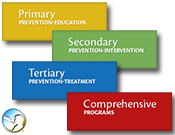
The Nurturing Parenting Programs are designed for the prevention and treatment of child abuse and neglect.
To meet the specific needs of families, programs have been identified according to the standard levels of prevention: Primary, Secondary (intervention), and Tertiary (treatment).
Primary Prevention-Education Programs are designed to empower individuals and families with new knowledge and skills.
Secondary Prevention-Intervention Programs are designed for at-risk youth, teen parents & families experiencing moderate levels of dysfunction.
Tertiary Prevention-Treatment Programs are designed for families referred for parenting education by Mental Health/Social Services.
Comprehensive Programs are designed for agencies to offer long-term, more comprehensive parenting education.
Implementing Nurturing Parenting Programs (Birth to Age 5)
Originally posted 5/1/2015
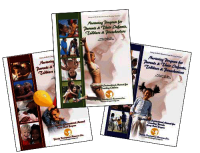
The Nurturing Parenting Programs are trauma-informed, family-based programs designed for the prevention and treatment of child abuse and neglect.
As a family, parents and their children learn positive and caring nurturing skills.
The Nurturing Parenting Programs are family-based prevention and intervention programs designed to develop nurturing parenting practices. The program is competency-based.
Each group- and home-based session has stated competencies designed to measure when parents have acquired a new understanding and demonstrate new skills that represent nurturing parenting strategies and practices.
The underlying theoretical assumptions of the Nurturing Parenting Programs are the following…
Arkansas to Kick Off Nurturing Parenting Program
Originally posted 2/10/2015
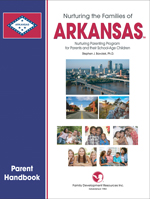
Training aimed at preventing abuse, reducing the number of children coming into foster care
In an effort to prevent more children from coming into the state foster care system, the Arkansas Department of Human Services Division of Children and Family Services (DCFS) is launching a program in March that teaches the fundamentals of becoming a more nurturing parent.
The program will be used to improve the parenting skills of those families who have already come into contact with the child welfare system but are not under court supervision…
Young Parents & Their Families
Originally posted 1/20/2015
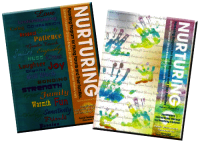
The Nurturing Program for Young Parents and Their Families is referred to as a competency-based program.
Each lesson has identified competencies the parents need to learn in order for their parenting practices to improve.
Parents attend 16 group sessions each lasting 2 1/2 hours. Families can also receive individual home/parent sessions between the group sessions to ensure the knowledge and skills presented in the group sessions are being implemented in the home…
Nurturing Parenting Programs and Over 30 Years of Evidence
Originally posted 11/18/2014

Family Development Resources has been providing cost-effective, validated approaches to help treat and prevent child abuse and neglect for over 30 years.
Please read: “History and Development of the Adult-Adolescent Parenting Inventory and the Nurturing Parenting Programs“
Families learn new skills and attitudes that reduce dysfunction in families, with follow-up studies indicating low rates of recidivism.
The Nurturing Programs® have and will continue to make a significant contribution to the overall health and functioning of families.
Effectiveness of the Nurturing Programs…
Originally posted 10/13/2014
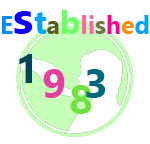
Since 1983, over 2 million families have participated in the Nurturing Parenting Programs.
Family Development is seeking published articles or unpublished research reports regarding the effectiveness of the Nurturing Programs.
The articles and reports may be posted on our website or submitted as additional evidence to national agencies that rate evidence-based parenting programs.
In addition, FDR is seeking agencies who are currently engaged in or interested in participating in studies utilizing control group or randomized control group research designs. Material compensation will be provided to agencies contributing to this request.
Strengthening Parent & Child Bonding and Attachment Activities Manual
Originally posted 9/15/2014
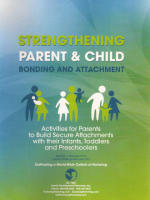
Read, Touch, Talk, and Play
Increase the feelings of closeness between you and your children and help your child’s brain grow. We call that closeness “bonding and attachment.”
Bonding means the intense feelings of caring and love between a mom and her baby. Mother-child bonding begins upon conception and carries through birth and early childhood.
While bonding happens early in the parent-child relationship, attachment is an extension of the bonded closeness between a mom and her child that lasts a lifetime.
Even though bonding and attachment are often used to refer to the closeness between mom and child, bonding and attachment are also feelings that fathers feel…
Cultivating a Culture of Nurturing in our Schools and Families
Originally posted 7/2/2014
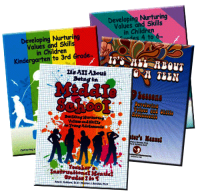
The ability to positively nurture is a part of the nature of all human beings.
Developing Nurturing Skills (DNS) Program’s overall goal is to cultivate a culture that promotes positive nurturing beliefs, knowledge, and behaviors in our classrooms and in our families.
Working together to create a “norm of nurturing” teachers and parents can make both the classroom and the home two environments that reinforce positive nurturing.
We are born with the predisposition to care for others by forming strong bonds and positive, secure attachments. Unfortunately for many children, abusive and neglecting experiences, both in our homes and in our classrooms have been the norm…
Reporting Module for Assessments and Inventories
Originally posted 5/13/2014
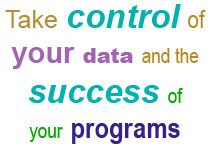
The Reporting Module Option saves time and money, improves your program delivery, and enhances your funding opportunities.
Have your reports reflect the accurate presentation of data that will impress your Board Members and Funders.
For a fee, you will have the ability to create your own summary data tables.
Summary tables are useful in monitoring the success of your programs, reporting information to your funding sources, reviewing the levels of progress parents are making, and providing feedback to your staff for all their hard work
Pics of Advanced Options Selection and Sample Report:
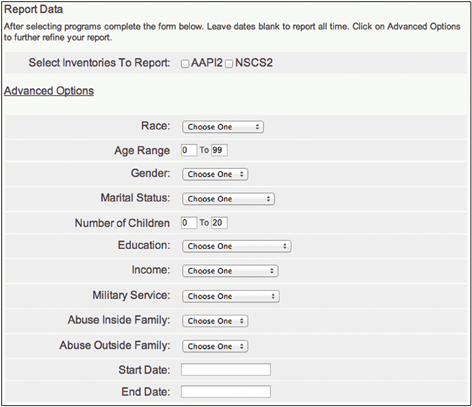
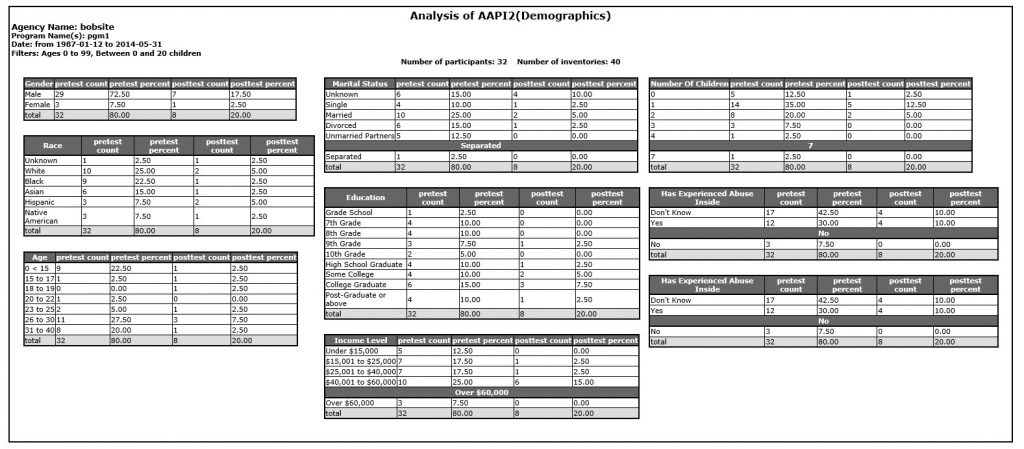
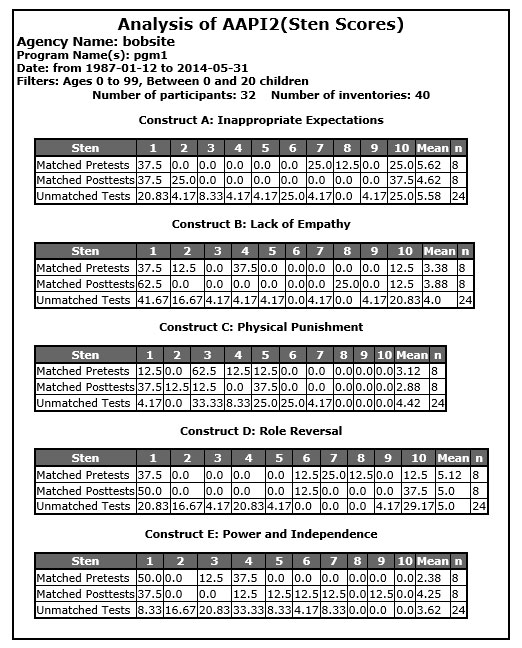
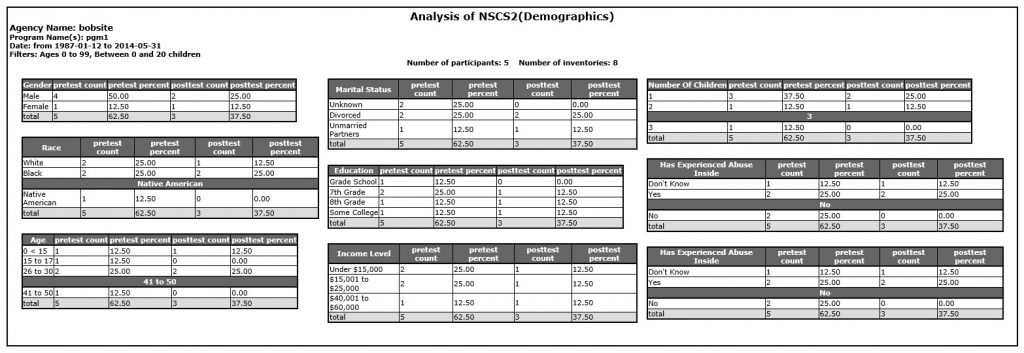
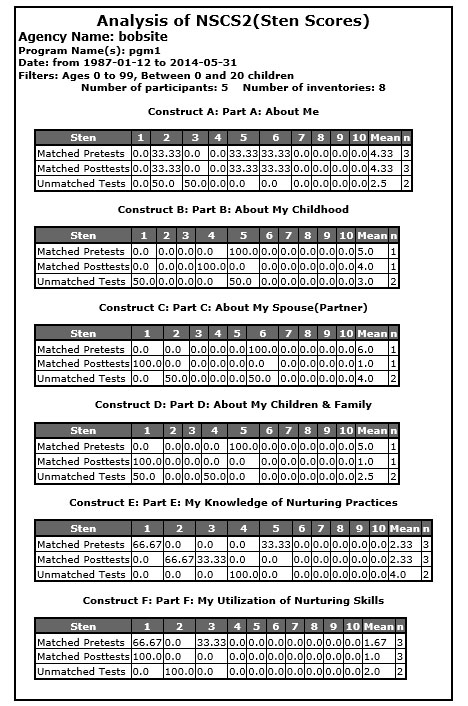
One Report provides an analysis on:
Analysis of AAPI-2 (Demographics), Analysis of AAPI-2 (Sten Scores), Analysis of NSCS (Demographics), Analysis of NSCS (Sten Scores)
The analysis of the AAPI & NSCS Sten Scores will reflect all Constructs…
Introducing the VSPEC Parent Education Toolkit
Originally posted 3/5/2014
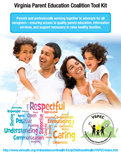
Ever wonder why some parents go to parent education classes and their children are still at risk?
Sometimes we assume the parent didn’t participate fully but it could be they were not referred to the level of class to best meet their needs.
The Virginia State-Wide Parent Education Coalition (VSPEC) is a professional organization.
VSPEC is comprised of members in the public and private sectors who work with families and/or conduct parent education classes, has developed this Parent Education Toolkit to help you determine whether the classes meet the needs of the person you are referring to attend them.
The Toolkit defines three types of parenting education and describes the population served as well as the recommended expertise of providers of the services.
The Toolkit can be downloaded on the VSPEC website: vahealth.org
VSPEC encourages those who refer parties to parent education to locate appropriate providers in their area and, using the Toolkit as a guide, to find out the population that can most benefit from what they have to offer.
To request additional information or to provide feedback on the Toolkit, please contact: Johanna Schuchert at: vspecinfo@pcav.org
3 Year Independent Study
Originally posted 2/26/2014
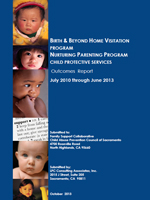
The outcome finding supports the effectiveness of the
Nurturing Parenting Program as an effective Home Visitation program.
This is an extensive study conducted by an independent researcher hired by Birth and Beyond in Sacramento.
Over a period of three years, 4,600 Home Visits were conducted including just short of 10,000 children with extensive longitudinal follow-up analyses.
For the last 13 years, the annual evaluation of the Birth & Beyond Program has featured a follow-up study of referrals to Sacramento County Child Protective Services (CPS) to ascertain the potential risk reduction associated with home visitation services for some of Sacramento County’s most vulnerable children. The ongoing evaluation study compares referrals to CPS prior to and following participation in home visitation.
This report provides CPS outcome findings for families served between July 1, 2010, through June 30, 2013. During that three-year time period, Birth & Beyond served 4,600 home visitation families and 9,752 children. At the close of FY2012/13, 2,357 families had either left the program or were still receiving services. The findings presented herein are based on a cohort of 1,943 families elected for the CPS follow-up study during this reporting period.1 The families in this study have a total of 4,354 children.

